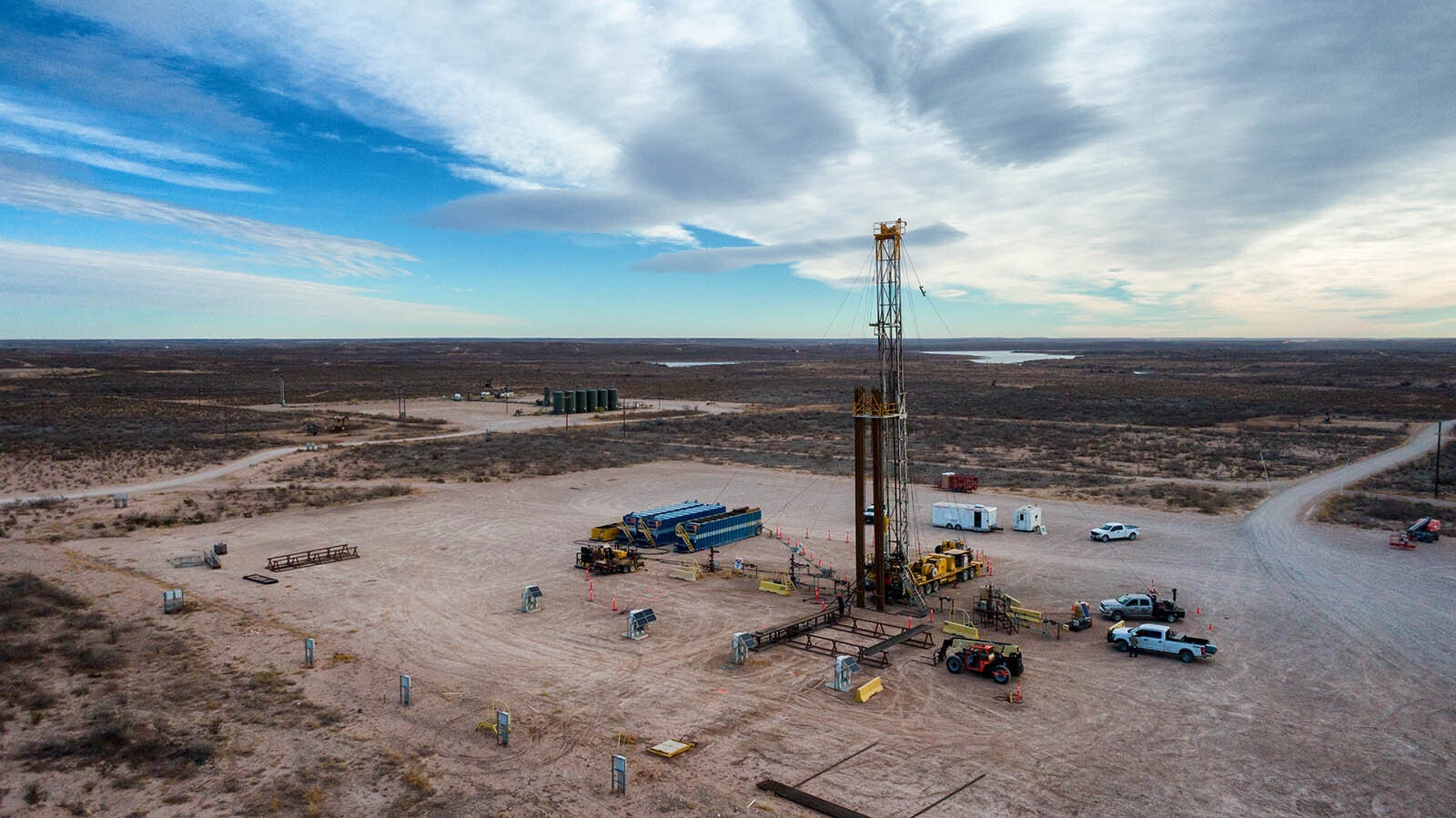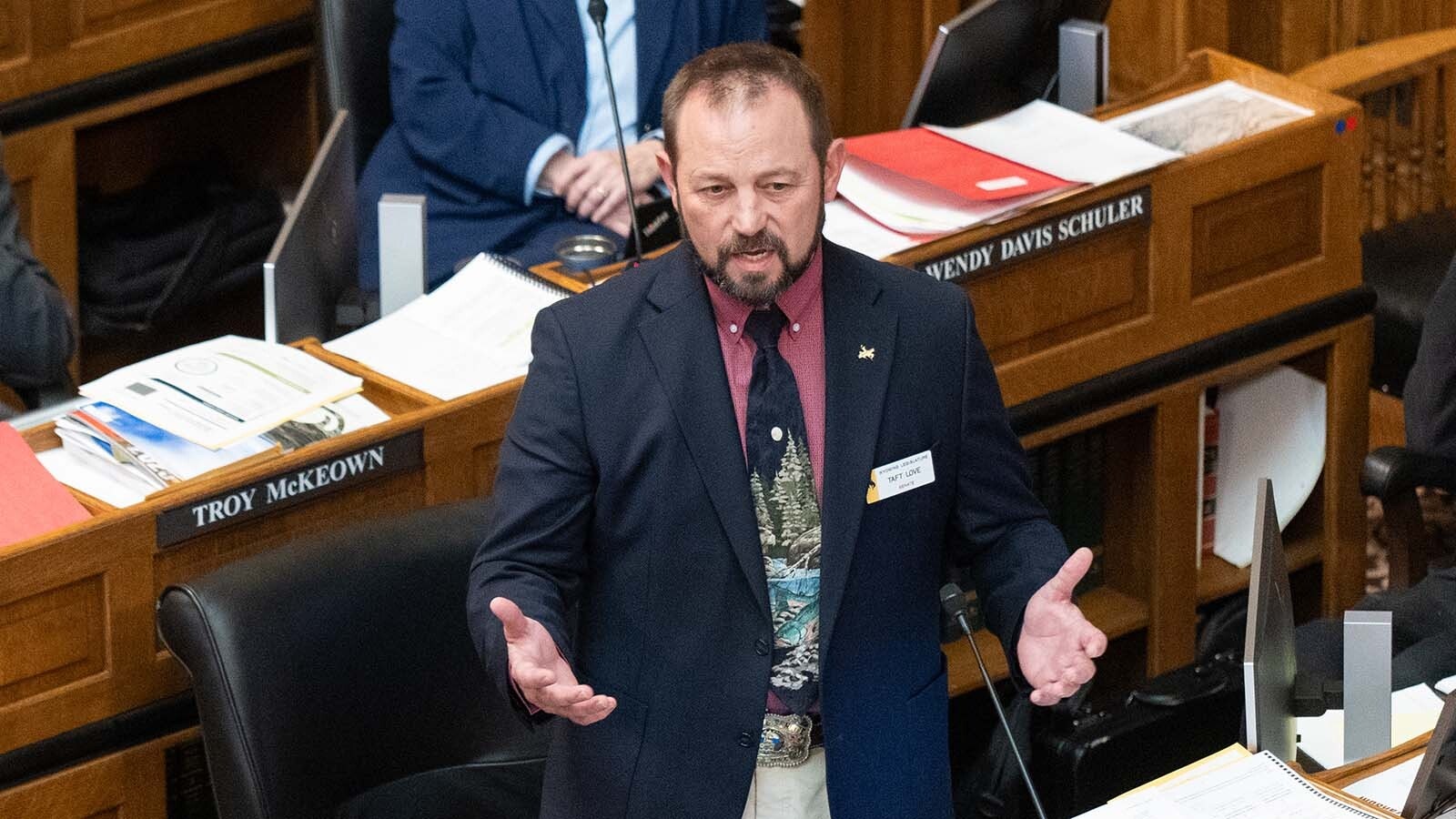The Bureau of Land Management has announced a new round of federal oil and gas leases, but they come at a price, leaving Wyoming producers wondering if they can still make a profit.
“It’s going to be very difficult. I mean, the federal government clearly has a bias against federal oil and gas,” said Randall Luthi, chief energy advisor for Gov. Mark Gordon.
The Inflation Reduction Act, which was passed in August, increases the minimum bid by for federal leases by 500% per acre. The act also increases minimum rent rates as well as royalties.
While environmental groups are supportive of many of the oil and gas policies coming out of the Biden administration, industry officials say the administration’s hostility is making it more difficult to operate in Wyoming.
Adequate Protections?
Environmental groups are keeping a close eye on the leasing process to make sure impacts to wildlife, air and water resources receive careful review before leases are issued.
“We just want to see a full comprehensive review that BLM has promised for a number of years now on the federal oil and gas program,” said Shannon Anderson, attorney with the Powder River Basin Resource Council, a Sheridan-based Wyoming energy watchdog group.
The group also wants rules on minimum bonds to be finalized before the BLM issues the leases and that those rules adequately ensure the costs of reclamation will be covered. Anderson said that at current rates, it’s sometimes cheaper for a company to walk away from reclamation of wells than to pay for the work themselves.
“It actually creates a perverse incentive,” Anderson said.
As an example that current minimums aren’t high enough, Anderson points to federal programs, such as the one created under the infrastructure bill passed last year that provides nearly $5 billion to clean up orphan wells across the country.
“It’s been a huge subsidy to the industry and at taxpayer expense,” Anderson said.
The PRBRC has claimed in the past that the federal government rushed projects through approval without doing a full review of potential impacts to wildlife, climate and local communities.
The PRBRC joined the Western Watersheds Project in a lawsuit filed last month against the BLM for an approved 5,000-well project in Converse County. The suit, which was filed in U.S. District Court of the District of Columbia, argued the approval did not properly apply the federal land use plan or guarantee wildlife protections.
Business Decisions
Luthi said the guidance under the Inflation Reduction Act may lead the federal government to drop quarterly lease sales altogether and go with only annual ones. The new rules under the IRA also forbid the noncompetitive lease process that would happen after companies wouldn’t lease through the competitive process.
Luthi estimates the state will see about a quarter of the leases it would have in the past.
Ryan McConnaughey, communication director for the Petroleum Association of Wyoming, said Wyoming already faces a number of obstacles, such as increased transportation costs because of the distance from markets and effective tax rates, which are double the rate of Colorado and triple that of New Mexico. Increasing leasing costs is only adding to the difficulties.
“Given the capital needed to invest in drilling operations, Wyoming producers will have to take into account these increased costs, as well as evaluate their confidence in oil markets over the long term in order to make their business decisions in regard to the lease sale,” McConnaughey said.
Oil prices have risen over the past couple weeks to nearly $90 per barrel WTI, but McConnaughey said that will only go so far to help with the increased costs of leases.
“Companies are far more concerned about the long-term outlook in terms of price, access to capital, demand and the regulatory environment than short-term swings in the price of oil,” he said.
Luthi pointed out that increased oil prices may help producers pay for increased costs from the federal government, but they also translate to higher costs for consumers. They also increase the cost of oil and gas production in Wyoming.
“The oil and gas industry uses vehicles as well. So it just adds to the overall burden of cost,” Luthi said.
Trump Vs. Biden Policies
Economists Stephen Moore and Casey Mulligan did an analysis on the impact of Biden’s policies on oil and gas production compared to where production would be under former President Donald Trump’s policies.
“The U.S. would be producing between 2 and 3 million more barrels of oil a day and between 20 and 25 more billion cubic feet of natural gas under the Trump policies. This translates into an economic loss – or tax on the American economy – of roughly $100 billion a year,” the economists wrote in their report.
Nathan McLeland, CEO of Gillette-based M&K Oil Co. LLC said things have grown considerably more difficult since Biden took office. The company bid on some leases at the end of the Trump administration, and they still haven’t been issued.
“That’s a challenge. We have a lot of federal lands in Wyoming,” McLeland said.
The Biden administration has not issued a single lease since the third quarter of 2020.
While adding more expense to domestic oil production, the federal government has tapped the Strategic Oil Preserve to help curb energy prices. It now sits at the lowest level in 40 years, leaving the nation with about three weeks of oil supply in the stockpile.
Bloomberg reports that in spring 2020, Democrats in Congress shot down a proposal by Trump to replenish the supply using domestic oil producers when the price was about $24 per barrel.
Independent journalist Michael Shellenberger, author of “Apocalypse Never and San Fransicko,” reports that the White House made a secret deal to buy up to 200 million barrels of OPEC+ oil at more than $80 per barrel to replenish the SPR, in exchange for OPEC+ not cutting oil production. OPEC+ includes Middle Eastern oil-producing countries, as well as nonmember countries, such as Mexico and Russia. These nations supply 55% of the globe’s oil.
The international group wasn’t persuaded by Biden’s request. It announced this week it would go ahead and cut production by 2 million barrels per day.
“Instead of wringing his hands over his failed attempt to convince Saudi Arabia and other OPEC+ countries not to cut production, President Biden should be doing everything he can to spur domestic exploration to shore up our national security and support American workers,” McConnaughey said.
Hard-Working Folks
The BLM is offering 209 parcels totaling 251,086 acres in the proposed Wyoming sale, which goes through a 30-day scoping period for the bureau to gather public comment on the sale.
McCleland maintains a sense of determination and says there’s still opportunities for oil and gas in Wyoming, despite the challenges it faces working with the federal government.
“It’s a less friendly environment than it used to be, but our operators are resilient,” he said. “And our industry is resilient. We’ll keep doing the best job we can to try to get our message out that we do good work, that we’re hard working folks. And we’re providing a product that everyone needs and uses.”





